MCQs on Indus Valley Civilization:
Ques. Most of the large Harappan towns had for fortifications which served the purpose of
(a) safety from robbers
(b) protection against cattle raiders
(c) protection against floods
(d) All the above
Ques. The archaeologist to initially discover the Mohenjo-Daro site of the Indus Valley Civilization was
(a) Sir John Marshall
(b) Daya Ram Sahni
(c) Sir Martimir Wheeler
(d) Rakhal Das Banerji
Ques. Which of the following is a port town of Indus Valley Civilization?
(a) Harappa
(b) Alamgirpur
(c) Banawali
(d) Lothal
Ques. The Indus Valley civilization was famous for:
(a) Well-planned cities
(b) Efficient Civic organization
(c) Progress of art and architecture
(d) All these
Ques. The Indus Valley Civilization can be said to belong to the
(a) Paleolithic age
(b) Primitive age
(c) Neolithic age
(d) Bronze age
Related: Ancient History Questions / Answers
Ques. Which of the following civilisations is net associated with the Harappan Civilisation?
(a) Mesopotamian
(b) Sumerian
(c) Chinese
(d) Egyptian
Ques. The script of Indus valley Civilization is/was
(a) Brahmi
(b) Pali
(c) Dravidian
(d) It is still undeciphered
Ques. There are similarities between the seals found at Mohenjo-Daro and ___
(a) Egypt
(b) China
(c) Sumeria
(d) Afghanistan
Ques. The Harappan or Indus Valley Civilisation flourished during the ____ age.
(a) Megalithic
(b) Paleolithic
(c) Neolithic
(d) Chalcolithic
Related: herbs and spices online test
Ques. The Indus Valley people venerated the
(a) Bull
(b) Garuda
(c) Eagle
(d) Cow
Ques. Which of the following was common to both the Harappan society and the Rigvedic society?
(a) Horse
(b) Female deities
(c) Urban centres
(d) Iron implements
Ques. The Harappas had commercial relations with
(a) China
(b) Jawa
(c) Mesopotamia
(d) Burma (Myanmar)
Ques. After the partition of India, the largest number of Harappan towns and settlements have been found in
(a) Punjab
(b) Haryana
(c) Gujarat
(d) Uttar Pradesh
Related: List of Suffixes and Suffix – English language
Ques. Bones of horses of Harappan civilization were found at
(a) Lothal
(b) Surkotada
(c) Mohanjodero
(d) Harappa
Ques. Who possibly ruled the Indus people?
(a) an assembly of elders
(b) merchants
(c) kings
(d) priests
Ques. Mohenjo-Daro is situated in
(a) Montgomery district
(b) Larkana district
(c) Chandigarh area
(d) Gujarat
Ques. Cereal(s) grown by the people of the Harappan Civilisation was/were
(a) Wheat
(b) Rice
(c) Millet
(d) All the above
Related: Ancient Indian history quiz
Ques. The utensils of the Indus Valley people were mainly made of
(a) clay
(b) copper
(c) bronze
(d) brass
Ques. The script of the Indus Valley Civilization was
(a) Persian
(b) Dravidian
(c) Undecipherable
(d) Sanskrit
Ques. Of the following scholars who was the first to discover the traces of the Harappan Civilisation?
(a) Sir John Marshall
(b) A Cunningham
(c) Daya Ram Sahani
(d) RD Banerji
Ques. The economy of the Indus Valley people was based on?
(a) Agriculture
(b) Trade and Commerce
(c) Crafts
(d) All the above
Related: Indian Political parties and their Symbols
Ques. The Indus Valley Civilization has been assigned the period 2500-1800 BC on the basis of
(a) Mystical insight by modern seers
(b) Markings on seals
(c) Radio carbon dating
(d) Travellers written accounts
Ques. The Indus people were worshippers of
(a) Mothers Goddess
(b) Indra
(c) Rudra
(d) Varuna
Ques. The most common animal figure found at all the Harappan sites is
(a) unihorn bull
(b) bull
(c) tiger
(d) cow
Related: Roman numerals list 1-200
Ques. Which of the following metals was not known to the Indus Valley people?
(a) tin
(b) lead
(c) iron
(d) copper
Ques. The Harappan Civilisation achieved far greater advancement than Sumer, Elam etc. on account of its
(a) town planning
(b) metal working
(c) weights and measures
(d) seals and figures
Ques. The date of the Harappan Civilisation (2300-1750 BC) has been fixed on the basis of
(a) Pottery design
(b) Stratification
(c) Aryan invasion
(d) Radio Carbon-14 dating
Ques. Which of the following objects was not worshipped by the Indus valley people?
(a) Mother Goddess
(b) Pashupati Shiva
(c) Trees such as Peepal and Acacia
(d) Trimurti
Related: Architecture terms list
Ques. The town planning in the Harappan Civilisation was inspired by a regard for
(a) beauty and utility
(b) uniformity
(c) sanitation and public health
(d) demographic factor
Ques. Which of the following Indus Valley sites is presently in Pakistan?
(a) Kalibangan
(b) Harappa
(c) Alamgirpur
(d) Lethal
Ques. Which of the following metals was not known to the Indus valley people?
(a) gold
(b) silver
(c) copper
(d) iron
Ques. The Indus or Harappan Civilisation is distinguished from the other contemporary civilisations by its
(a) town planning
(b) underground drainage system
(c) uniformity of weights and measures
(d) large agricultural surplus

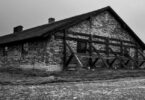
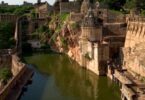

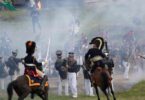
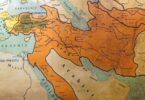
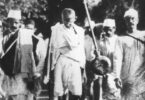
Few of the question have wrong answer।
Like haddapan civilization have not recognised language।
Important question thank you so much
Ok
Very easy questions but I’m not sure who is right answer